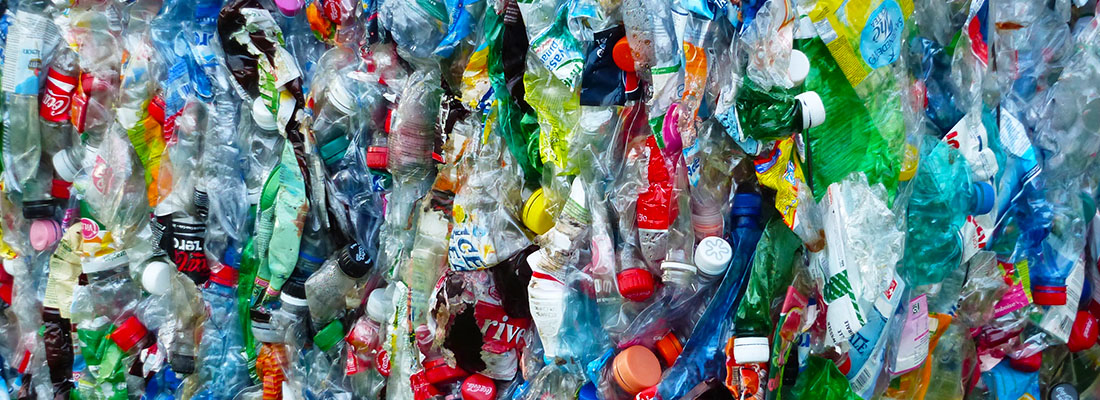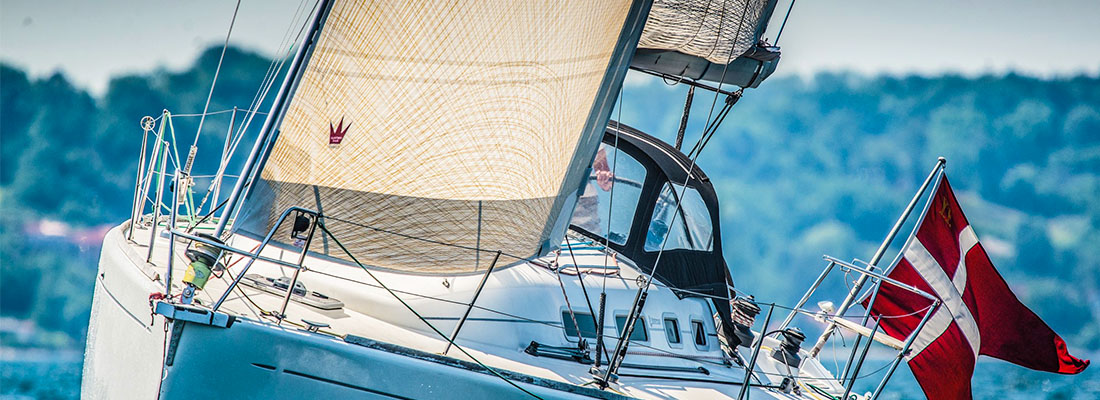For the last few years we have been reporting on developments in the fight against plastic pollution, and as a full member of IFBSO (International Federation of Boat Show Organisers), METSTRADE has also been supportive of their “ReThink Plastic’ campaign. This seeks to influence public awareness, and initiate actions contributing positively to the battle for ocean health, via the significant outreach of the world’s leading boat shows.
Last year we reported on the IFBSO initiative, and also highlighted several products that are being produced with recycled waste plastic incorporated into them. In case you missed these blogs, you can access some of them here:
- Cleaner Ocean Campaigns, Boat Shows at the Leading Edge
- Actions Against Plastic, Update
- Putting Waste Plastic Back Into Boating
More recycled plastic products from marine suppliers
Just recently, two well-known brand names in the leisure marine industry have announced new products that incorporate recovered plastic waste into their manufacture. We previously mentioned that Marlow Ropes had launched their Blue Ocean Dockline in 2018, a rope made from 100% recycled plastic bottles, with 7.5 of them going into each each metre of length.
Having presumably found a good level of market acceptance for a product with such appealing sustainability credentials, Marlow have now extended their offer, and introduced the Blue Ocean Double Braid range. This line is suitable for applications such as sheeting, furlers, guys, halyards, and reefing. It is available in sizes from 6mm through to 14mm diameter, and also manufactured from recycled plastic bottles in the same way as the Dockline.
Since the Dockline was first launched, over half of Marlow’s yachting range is now being manufactured from sustainable materials, and they say that the products are equal in performance to standard polyester lines, exhibiting excellent abrasion resistance, shock loading and flexibility.
As part of an overall effort to lower their carbon footprint and to introduce more sustainable materials, the company aims to be using 100% recycled materials in their manufacturing by the year 2030. And, moving from ropes to sails, another well-established quality brand in the sailing world has discovered that recovered plastic waste can be a suitable raw material for producing a more sustainable alternative to virgin produced polyester.
Elvstrom Sails have announced that they have produced the world’s first sail made from recycled plastic bottles, and they have plans to further expand the concept under the brand name Ekko. The Danish based company established by the late Paul Elvstrøm nearly 70 years ago, also have a clear statement of policy where they pledge to source and use recycled materials in their products wherever possible, or to use materials that can easily be recycled at end-of-life. Their recent announcement highlighted an EPEX membrane jib, rigged on a Beneteau First 40.7, and made from a double taffeta, where the white light taffeta is 100% made from recycled plastic bottles.

Recycled plastics in manufacturing, challenges and opinions
Marlow and Elvstrom are both market leaders with sound reputations in the yachting world, and full marks to them for setting an example with their sustainability and carbon reduction objectives, including their plans to reduce and eventually eliminate the use of virgin plastics in their products.
So, what are the chances of recovered and recycled waste plastics becoming a widespread high-volume feedstock for a larger number, and a greater variety of manufactured products? After all, as everyone knows, we are literally drowning in the stuff, so there should certainly be no shortage of it!
But what about the costs, and practicalities of recovering and remanufacturing waste plastic into new products. Is it really a sustainable solution when the entire end-to-end process is fully taken into consideration from both an economic and an environmental perspective?
Ocean Cleanup - from recovery to production
One of the highest profile and enthusiastically followed initiatives for recovering discarded plastic from the oceans, is the Dutch based Ocean Cleanup project. Having overcome a number of challenges with their floating collection system in the Pacific, and more recently adding their ‘Interceptor’ module to capture plastic coming from river sources, they are shortly going to announce exactly what they intend to do with it all.
Their stated aim according to project founder Boyan Slat, is to have the recovered materials processed, turned into laboratory certified granular feedstock, and remanufactured by a reputable industrial partner into a product that is durable, and recyclable again at end-of-life. The idea is to raise money from this which will go back into the continuation of the Cleanup project.
Exactly what form that product will take is still to be revealed, but Slat says that the ‘catch’ is divided into hard plastics and ghost nets, and that the first products to be manufactured will be made from the ghost net materials which are easier to process than rigid plastic. However, even that is an arduous multi-step and potentially expensive process, involving transport, logistics, sorting, shredding, washing / drying, extrusion, manufacturing, and eventually distribution.
Is plastic recycling a lost cause, or a future industrial sector?
This is where opinions become quite divided, and some recently published articles serve to emphasise the different views, but also to highlight the huge influence of the major oil producers, and the price fluctuations in the oil price which directly affect the economics of plastic recycling.
A report by Reuters released earlier this month entitled ‘The Plastic Pandemic,’ looks at the impact of the Corona Virus and its associated increase in virgin plastic production. For instance, the demand for plastic products which quickly become waste has rocketed globally. They identify face shields, gloves, takeaway food containers and bubble wrap for online shopping as obvious examples.
Reuters also looked at how the Pandemic has driven down oil prices due to greatly reduced demand. They say the comparative cost of recycled plastic has long been at a competitive disadvantage to the virgin produced variety, but the significant drop in oil prices this year has widened the gap even further in favour of newly produced plastic. A study in September by energy think tank Carbon Tracker, revealed that the oil and gas industry plans to spend around $400 billion over the next five years on plants to make raw materials for virgin plastic, but are only spending a fraction of their revenues on supporting recycling schemes.
A slightly more optimistic viewpoint comes from the Netherlands based Plastic Soup Foundation in another article published this month. Here they also use financial analysis from Carbon Tracker in order to argue that overproducing virgin plastic will not save the oil industry in the longer term. Some of the reasons behind this argument are as follows:
* Shareholder sentiment is already turning negative due to lower returns.
* Investing in plastic and shale gas is becoming riskier, as it is not aligned with the United Nations’ Sustainable Development Goals (SDGs).
* Production and incineration of plastic increases greenhouse gas emissions, and thus threatens the objectives of the Paris Climate Accord.
* Ever increasing public awareness of the harm that plastic waste is doing to the environment, and realisation about its real long-term cost implications will ultimately lead to more and more consumer rejection.
* Social / industrial developments to switch from a linear system (new plastic) to a circular system (reuse of plastic) will also reduce demand for new plastic, and presumably give more impetus to the recycling concept.
In short, the jury is still out, and via METSTRADE we will try to keep abreast of developments and keep you informed.

